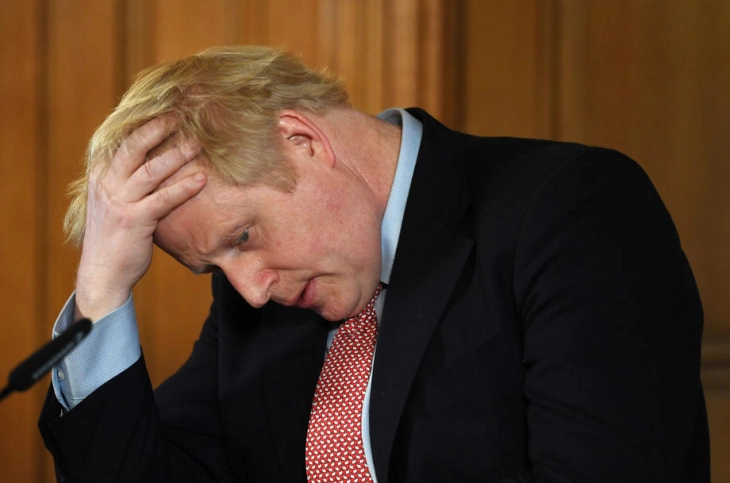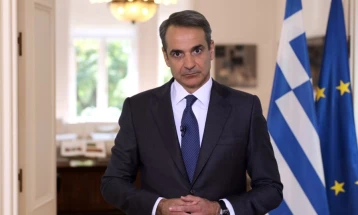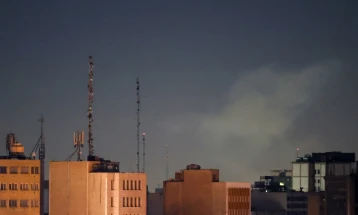Pandemic prevention measures to be eased, Britain's Johnson says

London, 19 January 2022 (PA Media/dpa/MIA) — Plan B measures — the most recent set of rules aimed aimed at tackling the spread of Covid-19 in Britain — are to be dropped across England, Prime Minister Boris Johnson announced on Wednesday.
Johnson told lawmakers in the House of Commons that more than 90 percent of people aged 60 and up across Britain have now had booster vaccines to protect them, and scientists believed the Omicron wave has peaked.
People will no longer be told to work from home and, starting Jan. 27, when Plan B measures lapse, mandatory Covid passes will end, Johnson said.
The legal requirement for people with coronavirus to self-isolate will also be allowed to lapse when the regulations expire on March 24, and that date could be brought forward.
When it comes to face masks, the government will no longer make people wear them anywhere starting Jan. 24 and they will be scrapped in classrooms starting on Thursday, with school communal areas to follow.
Johnson signaled his intention to start treating Covid-19 more like flu, saying: "There will soon come a time when we can remove the legal requirement to self-isolate altogether, just as we don't place legal obligations on people to isolate if they have flu."
"As Covid becomes endemic, we will need to replace legal requirements with advice and guidance, urging people with the virus to be careful and considerate of others."
The bonfire of Covid regulations could help appease Johnson's critics in his Conservative (Tory) party at a time when the prime minister has been under pressure regarding parties in his offices at times when the nation was under a health emergency lockdown.
It comes after Covid infection levels fell in most parts of Britain for the first time since early December, according to the Office for National Statistics (ONS).
Johnson said: "Today's latest ONS data show clearly that infection levels are falling in England and, while there are some places where cases are likely to continue rising, including in primary schools, our scientists believe it is likely that the Omicron wave has now peaked nationally."
"There remain, of course, significant pressures on the NHS across our country, and especially in the north-east and north-west, but hospital admissions which were doubling every nine days just two weeks ago have now stabilized, with admissions in London even falling."
"The numbers in intensive care not only remain low, but are actually also falling."
On the use of face masks going forward, Johnson said: "In the country at large, we will continue to suggest the use of face coverings in enclosed or crowded spaces, particularly when you come into contact with people you don't normally meet, but we will trust the judgment of the British people and no longer criminalize anyone who chooses not to wear one."
The ONS data shows that one in 20 people in private households in England is estimated to have had coronavirus in the week to Jan. 15.
That's around 3 million people nationally, down from 3.7 million in the week to Jan. 6.
In Scotland, around one in 20, or 236,000 people, is estimated to have had Covid-19 last week, down from 297,400. For Northern Ireland, the latest estimate is also one in 20, but the number of people testing positive is up slightly from 99,200 to 104,300, with the ONS describing the trend there as "uncertain."
Meanwhile, in Wales, the estimate is one in 25, or 112,100 people, down from 169,100.
Sarah Crofts, head of analytical outputs for the ONS Covid-19 Infection Survey, said: "Our latest figures show a welcome decrease in infections across most parts of the UK and among all age groups, apart from younger children."







